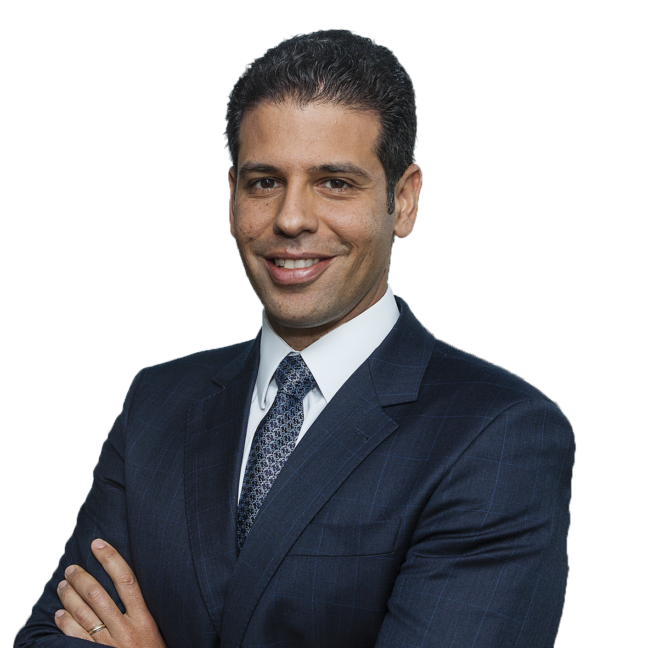TTR DealMaker Q&A with Machado, Meyer, Sendacz e Opice Advogados Partner Guilherme Bueno Malouf

Machado, Meyer, Sendacz e Opice Advogados Partner Guilherme Bueno Malouf is Head of the Business Law Department, which covers our M&A and Private Equity, Corporate, and Capital Markets practices. Expert in M&A transactions, private equity investments, organization of structured investment funds, especially Equity Investment Funds (FIP), Real Estate Investment Funds (FII), and Credit Rights Investment Funds (FIDC). Has extensive experience in the food and beverage, steel, cement, real estate, energy, services, technology, and retail. Part of the Asian Desk of the firm.
TTR – To begin with, Mr. Malouf, could you give us your opinion on the progress of the Brazilian M&A market in 2019?
It has been a good year for M&A, with a high number of transactions. Most active sector has been technology, but other sectors, such as oil&gas, health, education, real estate and timber have also been active.
We have seen some interesting high-end transactions involving Petrobras, Hapvida, Positivo, Madero and Cecrisa and our firm has been involved in a number of them.
TTR – You have advised in M&A deals in the technology sector, the most active in the country in recent years. So, what can you tell us about the evolution of this sector?
We have seen lots of deals and increasing competition in Brazil. Many of these transactions have been consummated in record-breaking timeframes. In terms of evolution, I would say that many players, who initially approached these transactions with a venture capital mindset (i.e., less concerned about liabilities and indemnification) realized that in Brazil tax and labor issues require a deeper analysis, not only to validate the business model of the enterprise, but also to identify potential liabilities and allow the investor to negotiate a suitable protection (i.e., indemnity and collateral).
TTR – What other sectors do you think can follow in its footsteps and why?
I think actually it is the other way around. The tech world is now balancing more and adjusting to the more traditional M&A standards. It is not impossible, however, that the fast-moving approach commonly seen in tech deals be replicated in other sectors, but this still remains to be seen.
TTR – Following from the previous question, and as an expert in the field, how has the development of the technology sector affected the legal concept of Intellectual Property? What new challenges arise from it?
Technology development and centricity on data are bringing questions about the extension of ownership and intellectual propriety rights. Issues related to ownership of personal data databases, scrapping information from public available sources, fair use with respect to copyright and disputes what constitutes unfair competition will become more and more frequent and complex. A bigger issue to be addressed is related to copyright in connection to works created by Artificial Intelligence, which is already a reality. To what extent such works will be copyrightable in light of the fact that are not human creations? We are not yet close to any consensus about how to deal with several of those issues but the implications to the intellectual property concept are evident.
TTR – Another of your areas of expertise is capital markets. After its start at the beginning of the year, how do you rate its operation so far in 2019? What is your forecast for the end of the year?
2019 has been a very good year for capital markets. CVM (the Brazilian SEC) has registered 14 public offering of equity securities, totaling more than R$35 billion. This is a huge increase from the average of the previous years. In addition, a total of 38 “limited effort” public offering of equity securities (known as “476 offerings”) have already been completed and involved a total of R$32 billion. Our debt market (debentures) has remained hot as well.
We continue very active and our projections are for a very active end of 2019 and beginning of 2020.
TTR – Finally, also considering your experience in Private Equity, how do you expect that type of investment to progress?
Structure-wise, the use of FIPs (our private equity investment fund) by foreign PE firm has been under a huge scrutiny of tax authorities. My perception, though, is that the current administration wants to foster foreign investments, including PE investments, and that a middle ground solution will be set. The enactment of the “economic freedom act” is an indication of that.
Venture and Seed Capital investors tend to be more innovative, and many times structure their investments either through an offshore vehicle (whose sole asset is the investment in the Brazilian target) or through loans or debt securities. Such structures allow the investor not only an easier exit but also enhanced protection against liabilities of the target companies (that in Brazil many timed pierce the corporate veil and are attributed to shareholders).
